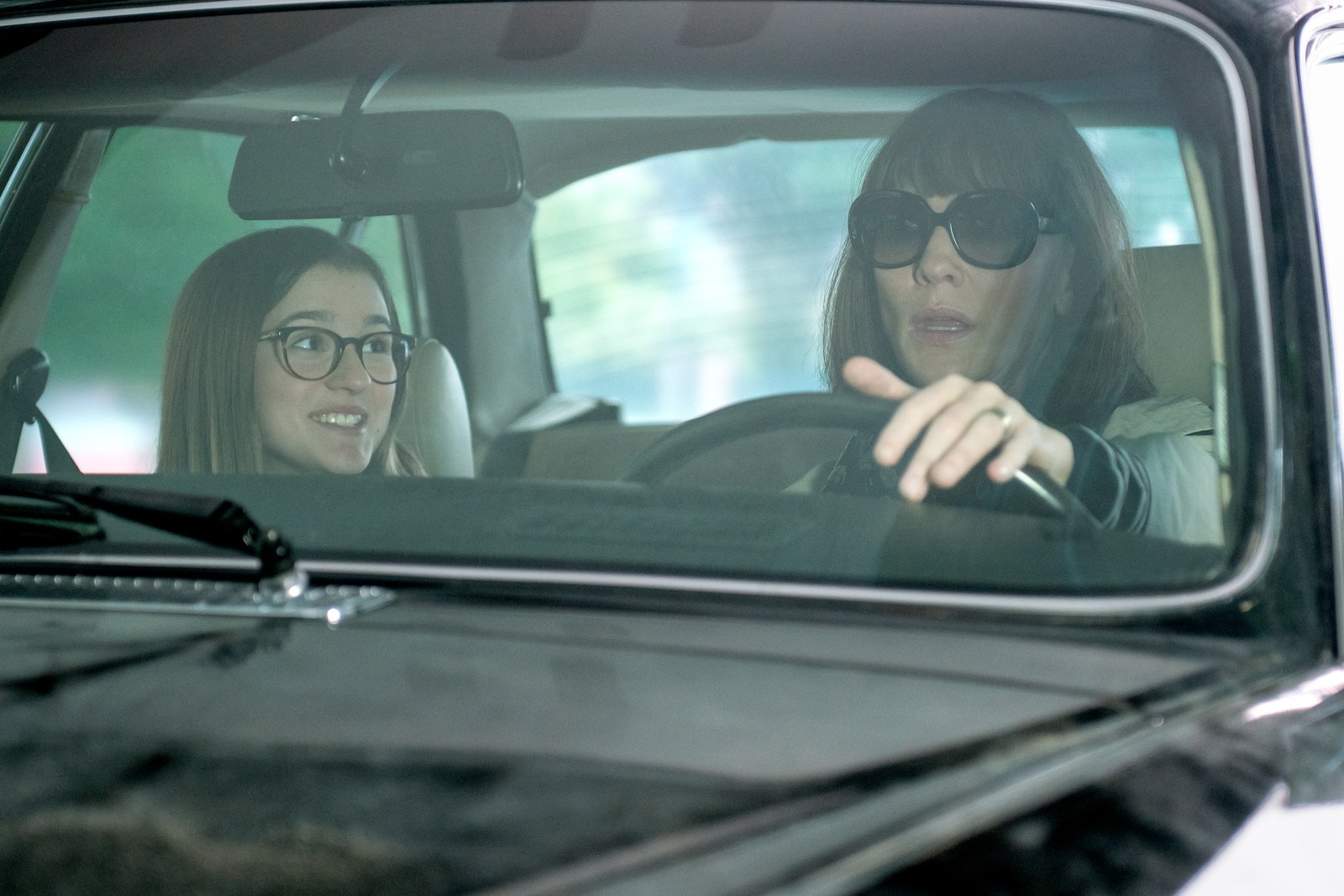Cate Blanchett on 'Where'd You Go, Bernadette': 'There Is No Such Thing as a Perfect Parent'

“It’s a complete oxymoron that we’ve all been [told] as women, the ‘perfect mother.’ There is no such thing as a perfect parent. You even still have conversations about mothers’ having to be sympathetic, or not do certain things,” Cate Blanchett tells me over the phone while we’re discussing her latest film, Richard Linklater’s Where’d You Go, Bernadette, in which she stars as Bernadette Fox, a character who is anything but a “perfect mother.”
For the uninitiated (i.e. those who haven’t read Maria Semple’s beloved 2012 novel that the movie’s based on), Bernadette is a former architect turned agoraphobic recluse. And though she’s criticized by the other mothers at her daughter’s expensive private school in suburban Seattle—including Audrey (Kristen Wiig), the queen of the PTA and Bernadette’s public enemy number one—it doesn’t matter as long as she’s still completely adored by her daughter, Bee (Emma Nelson).
But then, Bernadette’s life is turned upside down after Bee, who is about leave for boarding school, reveals her one wish before she goes: to take a family trip to Antartica. Bernadette agrees at first, then becomes more and more anxious about the impending journey. Eventually, it becomes her undoing. Halfway through the story, Bernadette disappears. Vanishes without a trace. To some—many, actually—that would be an unforgivable thing to do to your family. Bee, however, is the only one who understands her mother’s need to escape.
Bernadette (Cate Blanchett) with her daughter, Bee (Emma Nelson), during a chaotic school pickup.
WILSON WEBB/ANNAPURNA PICTURES
“It’s traditionally seen as being a monumentally unsympathetic thing for a mother to do,” Blanchett, a mother of four, says of Bernadette’s decision to leave.”But you have to empathetically get inside Bernadette—who can often be quite an alienating character—in order to understand. She has experienced massive creative failure, and she’s run away from it. All of her stuff has come up, and she’s got to deal with it in order to move onto the next chapter of her life.”
Playing Bernadette as a fully-formed character was somewhat of a challenge for Blanchett. In the book, the story is told through a series of documents, transcripts, and memos, allowing readers to understand Bernadette’s internal thoughts through her emails and correspondence. In the film, however, you’re watching Bernadette write these documents. Blanchett considered it her job to bring emotion to these moments as well as figure out the logistics. “When she sends an email, what is she actually doing when she sends it?” Blanchett explains. “[Because] it’s a lot of pain and grief that Bernadette is masking underneath her acerbic, relentlessly negative outpourings.”
